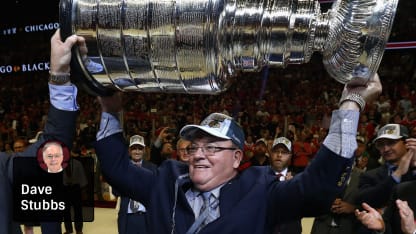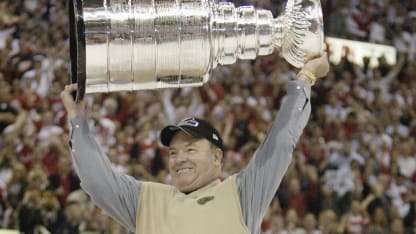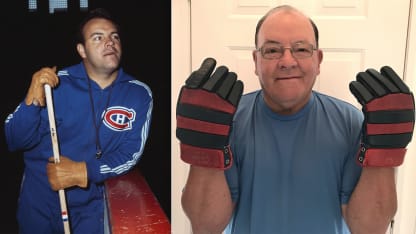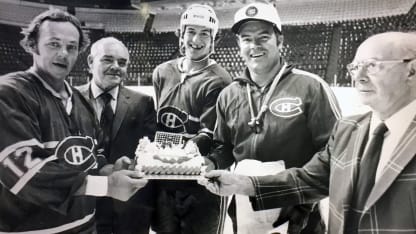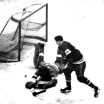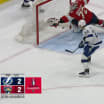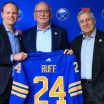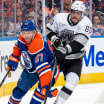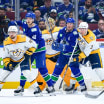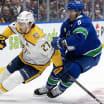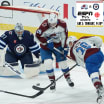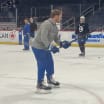He was delighted to mention that Monday also was the birthday of his namesake grandson, William Scott Bowman.
"He goes by Will. He never goes near Scott," Bowman said of the eldest of three children born to his son Stan, general manager of the Chicago Blackhawks, and his wife Suzanne.
And no, Bowman said, laughing again, he has no idea how many of his birthdays he's spent in arenas or on the road since the 1950s, in training camps or scouting or doing business for his team.
Bowman has had a front-row seat to the NHL since the mid-1950s, when he was cutting his coaching teeth in the Canadiens organization as an assistant to legendary GM Sam Pollock with the Ottawa Junior Canadiens. He would move up the ranks to become the first coach of the 1967-expansion St. Louis Blues, then chart a brilliant path with the Canadiens before moving on to the Sabres, Pittsburgh Penguins and Detroit Red Wings, inducted into the Hockey Hall of Fame as a builder in 1991.
Bowman coached 2,141 regular-season NHL games, but has seen many times that many throughout every level of hockey, either beating the bushes for the next great prospect or scouting in tiny community barns and huge NHL arenas.
A devoted fan, indeed an encyclopedia of the history of the game, saying that hockey is what fuels Bowman wouldn't begin to tell his story. So on his 84th birthday, it was the most natural thing in the world for him to be in another arena for another 60 minutes of the sport that is his lifeblood.
Here are Five Questions with … Scotty Bowman:
There's a photo of you at the Canadiens' 1971 training camp wearing a pair of leather gloves that you might wear to drive a car in the winter. Do you have an explanation for those?
"I'd wear them all the time, but when I went to Detroit, Igor Larionov said to me, 'Scotty, there's no protection in those. I can get you a pair of gloves, made for the game of bandy, that Russians coaches all wear.' So he got me a pair of red and blue bandy gloves, with some Russian script on them. I still have them. There's a photo of Dick Irvin with Jean Beliveau at Jean's first Canadiens camp in 1950, and Dick is wearing a shirt and tie under a U.S. Army jacket that he'd been given. Dick Jr. asked me I ever wore a wool peak cap and a tie to run a practice. No, I didn't."
